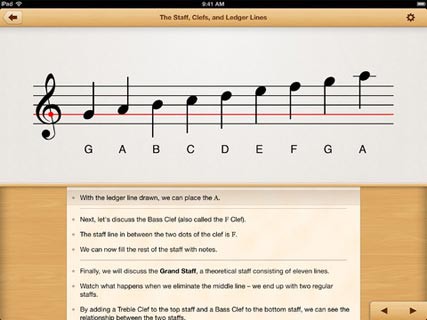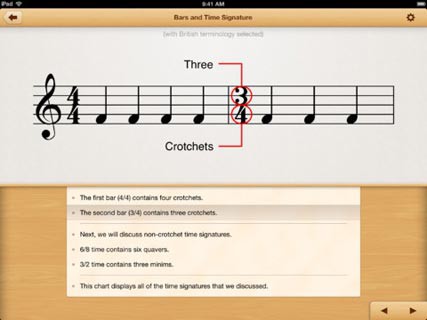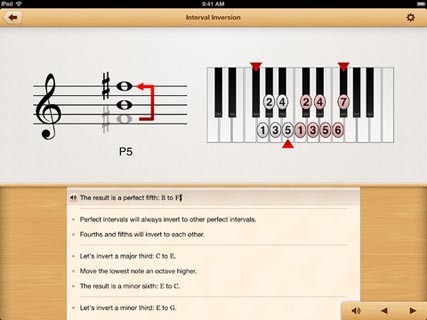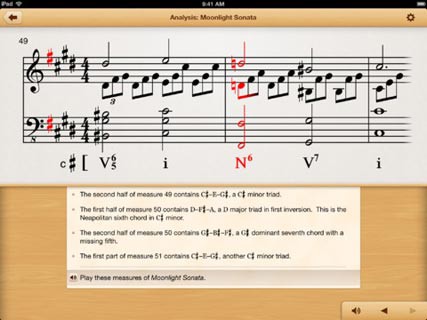Theory Lessons
Description
Theory Lessons features 39 music theory lessons from musictheory.net, presented in their original animated versions.
Complete lesson list:
- The Staff, Clefs, and Ledger Lines
- Note Duration
- Measures and Time Signature
- Rest Duration
- Dots and Ties
- Steps and Accidentals
- Simple and Compound Meter
- Odd Meter
- The Major Scale
- The Minor Scales
- Scale Degrees
- Key Signatures
- Key Signature Calculation
- Generic Intervals
- Specific Intervals
- Writing Intervals
- Interval Inversion
- Introduction to Chords
- Triad Inversion
- Seventh Chords
- More Seventh Chords
- Seventh Chord Inversion
- Diatonic Triads
- Roman Numeral Analysis: Triads
- Diatonic Seventh Chords
- Roman Numeral Analysis: Seventh Chords
- Composing with Minor Scales
- Voicing Chords
- Analysis: O Canada
- Nonharmonic Tones
- Phrases and Cadences
- Circle Progressions
- Common Chord Progressions
- Triads in First Inversion
- Triads in Second Inversion
- Analysis: Auld Lang Syne
- Building Neapolitan Chords
- Using Neapolitan Chords
- Analysis: Moonlight Sonata
Pricing
| Plan | Price | Details |
|---|---|---|
| Theory Lessons | $1.99 | This app is designed for both iPhone and iPad. |
Reviews
Sign in or create an account to share your experiences with this tool.






Theory Lessons in an attractive mobile app that captures the lessons feature of the website Musictheory.net. Although I have used the exercises featured (captured in the Tenuto app) much more with students, this is also a useful tool.
Visually, this is a very attractive app. I find it useful for differentiation – students who are significantly ahead of or behind the rest of the class can study music theory concepts independently. However, this is much more effective for advanced students than for beginners, because the lessons, while animated, are not interactive. This is not my preferred way to teach music theory concepts.
It is a useful reference, though. It is quite comprehensive. Some, but not all, of the lessons have a listening feature. The language is technical. I think these lessons are most useful for high school or adult students, while the Tenuto exercises can be used effectively by younger students.